The Transforming Lives and Community Luncheon is a celebration of aging and our annual signature fundraising event, which was cancelled this year due to the coronavirus. The high point of the luncheon is an award to two people in their 70’s or older who have made a profound impact on the lives of San Franciscans and beyond, and who exemplify what it means to age with continued meaning and purpose.
This year’s honorees are Senator Dianne Feinstein and Rev. Dr. Amos Brown, the esteemed pastor of Third Baptist Church of San Francisco since 1976. Instead of the conversation we would have had with Rev. Brown on stage at the luncheon, he sat down with Kate Hoepke via Zoom to share some words of wisdom.
KH: How are you coping with Covid 19?
AB: I’m frustrated that certain faith leaders in this country are making pronouncements that this pandemic is upon us because God is angry. It’s this kind of nonsense, in addition to not following science, that result in a whole lot of innocent people being misled.
That’s why the positive humane activities that San Francisco Village has been about are so vital and so necessary: to help enlighten people, encourage them, engage them, and to be part of the solution. To show some empathy and compassion in times of stress and trauma, and refrain from judgment.
I believe that we need to be excellent in what we do, and San Francisco Village has been about excellence. That’s the only way that we can actually empower our communities to meet what my teacher, Dr. Martin Luther King Jr., envisioned: beloved community.
In the beloved community, we respect the worth and dignity of all persons, regardless of their differences in terms of culture, sexual orientation, or race. We need to get away from the arrogance that’s afoot in this nation, particularly coming from this nation’s leadership. We need leaders in the “national village” who will do justice, love mercy, and walk humbly with their God or whatever higher principles may guide their life.
KH: How did we get so off-track in our understanding of the beloved community?
AB: We’ve become engaged in dichotomist thinking, us v. them, and we’ve forgotten that little pronoun “we.” We are, in fact, family. We’re made of one blood. If we don’t learn how to live together as brothers and sisters, as Dr. King so eloquently said, “we are all going to perish as fools.” We need to show that we have minds to think, hearts to feel, and hands to work together, in order to build a better world.
There’s an old saying from my native state of Mississippi, that you’ve never seen a mule kick and pull at the same time. If we were all pulling our fair share in building community, there would be no time for kicking. There would be no time for racism, anti-Semitism, ageism or chauvinism. We would be working as the dream team, for the common good of all.
KH: What’s needed to restore this sense of common cause?
AB: One of my first aims is enlightenment. An honest exchange of ideas among all generations, classes, races and ethnicities so that we can make deliberative, sensible and sane choices. Secondly, we must reclaim that we are a nation governed by facts and truth. In our court system, you have to swear that you’re going to tell the truth, the whole truth, nothing but the truth, so help you God. At the same time, we have a president who lies with impunity. As they say in Mississippi, he lies even if the truth is in his favor. This distorted reality makes it even more important that each of us be a truth teller and a doer of good, if we’re going to rebuild our beloved community.
KH: At San Francisco Village, we’re interested in connecting the generations as a strategy for building a strong social fabric. Do you have any advice for us?
AB: I’ll go back to that homespun Mississippi wisdom again. An older preacher once said, “If you want to have success at plowing a field, you never team up two old mules by themselves. You always hook up an old mule and a young mule together.”
In August of last year, I was part of a delegation of African American faith and civil rights leaders who visited Ghana, West Africa in honor of the 400th year of the commencement of the slave trade. While I was there, I was presented with a walking stick in which the representation of a Sankofa bird is carved. In African lore, the story of the Sankofa bird expresses the importance of reaching back to knowledge gained in the past and bringing it into the present in order to make positive progress. In the bird’s mouth is an egg, which symbolizes possibilities, pregnant situations, positive things to come. The deeper lesson is that we must look back at our own history in order to go forward with integrity.
That’s what San Francisco Village is doing by connecting younger and older people in a common effort. I believe that together we will get through this pandemic and create a better world in the process.
KH: It has been a pleasure and an inspiration spending time with you, Rev. Brown. I hope to come to a service at Third Baptist when the shelter-in-place order is lifted.
AB: You can come any time. Our church is an inclusive universal church, with a global outlook.
We’ve been here in San Francisco since 1852. We were founded in the same year that Harriet Beecher Stowe released her book Uncle Tom’s Cabin and Frederick Douglass delivered his famous speech What Does the 4th of July Mean to the Negro? There is a lot of history in our church and like the Sankofa, we value that history because it informs our future.

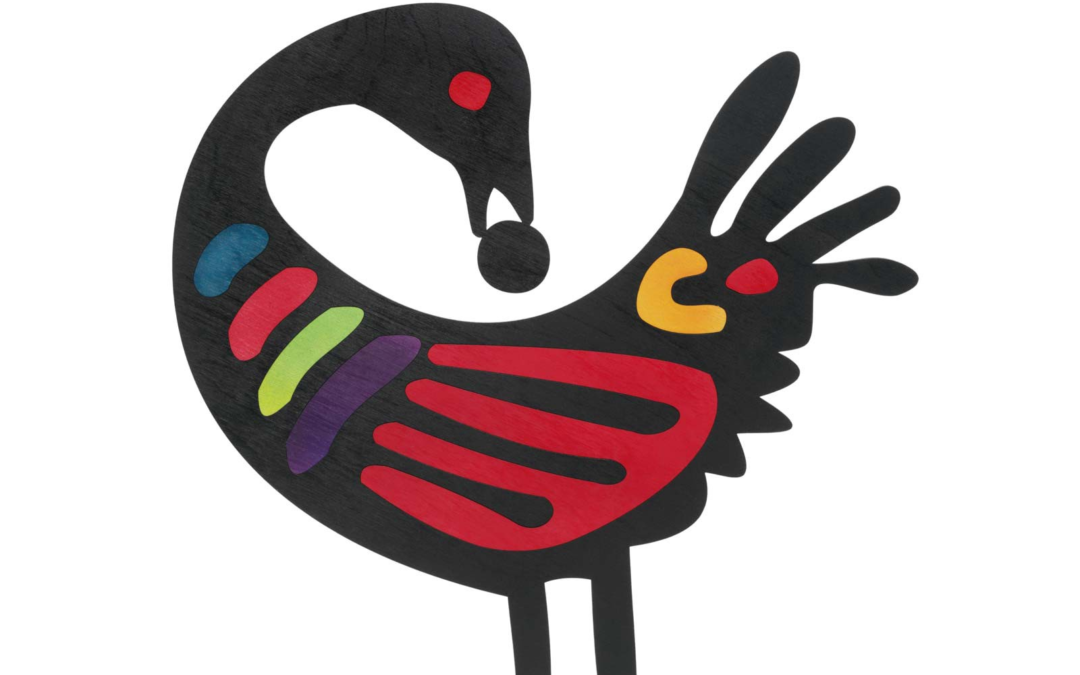
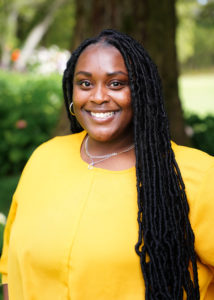
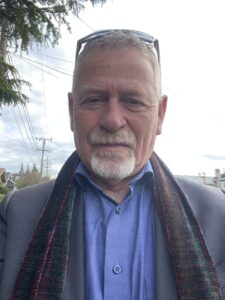
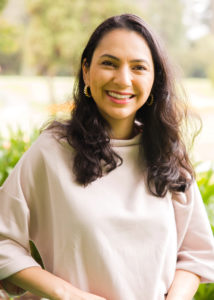
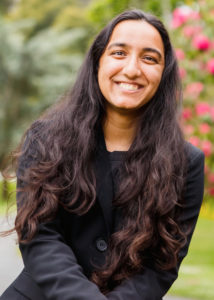
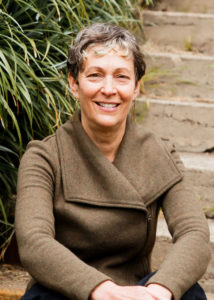
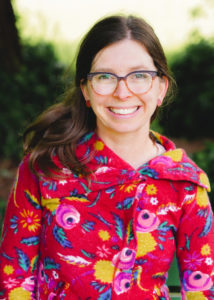
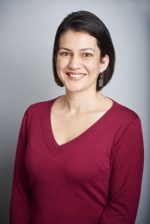 Sara joined the team in 2018. She brings with her 20 years of experience in community development, philanthropy, and organizational management. She completed her bachelors at George Washington University and her masters at UC Berkeley. Her career focus has been on evaluating how community groups run from year-to-year and strengthening daily processes to increase institutional success. Sara loves travel and global development issues, particularly a non-profit she founded 10 years ago focusing on students’ access to school in Cambodia. Sara is raising her family here in San Francisco.
Sara joined the team in 2018. She brings with her 20 years of experience in community development, philanthropy, and organizational management. She completed her bachelors at George Washington University and her masters at UC Berkeley. Her career focus has been on evaluating how community groups run from year-to-year and strengthening daily processes to increase institutional success. Sara loves travel and global development issues, particularly a non-profit she founded 10 years ago focusing on students’ access to school in Cambodia. Sara is raising her family here in San Francisco.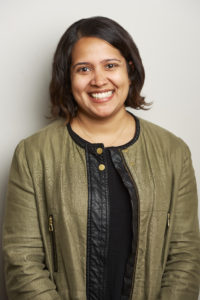 Maya is a public relations and communications professional with more than a decade of experience; her expertise includes consumer products and technology PR, as well as event management and content development. She has been a pro-bono consultant with the Taproot Foundation since 2012, and has participated in three service grants to date. Maya attended the University of California at Los Angeles (UCLA) and graduated with a BA in mass communications and a minor in political science.
Maya is a public relations and communications professional with more than a decade of experience; her expertise includes consumer products and technology PR, as well as event management and content development. She has been a pro-bono consultant with the Taproot Foundation since 2012, and has participated in three service grants to date. Maya attended the University of California at Los Angeles (UCLA) and graduated with a BA in mass communications and a minor in political science.